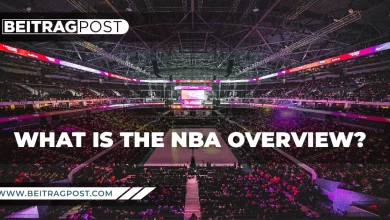The Importance Of Identity Verification in the Gaming Sector

Identity verification
The online gaming industry is experiencing instant growth. According to figures, it is forecasted to increase from $2.8 Billion by 2022 to $ 5$ Billion in 2025, at a CAGR of 28% to 30%. The gamer’s numbers are also rising from 420 Million to 450 Million by 2023 and will reach 50 Million by 2025. As these numbers are continuously increasing, it is obvious why scammers target this profitable sector, leading to the emergence of online gaming frauds.
After facing these challenges, the importance of identity verification has tremendously grown for gaming operators. They need to ensure that players are clearly who they are supposed to be before granting them access to gaming platforms. It includes verifying the credibility of new and current players while confirming their age eligibility for gambling activities. Similarly, it is vital to intelligently empower data to streamline the client experience and reduce unnecessary obstacles.
Rising Scamming Activities: Creating Discomfort for the Gaming Industry
Gaming sites attract players with handsome cash prizes and bonuses daily, and more users join the platform. Although substantial challenges arise when there is a lack of strict Know Your Customer (KYC) and onboarding measures to confirm each identity.
Despite having age limitations, minors manage to penetrate the realm of Real Money Gaming (RMG). scammers exploit this by using fake or stolen IDs, making multiple accounts, and engaging in activities including abusing bonuses and counterfeit bets. Moreover, individuals from banned sites can sign up and gain unauthorized access to the platform. Hence, exposing gaming operators to compliance risks.
But in a few cases, bad players exploit genuine ones, disrupting the gaming experience and threatening the operator’s reputation. Examples of gaming fraud include chargebacks, bonus abuse, underage playing, suspicious transactions, and money laundering becomes prevalent daily.
Yield with Anti-Fraud Regulations
Gaming operators are bound to adhere to government guidelines and rules, including Know Your Customer (KYC) and anti-money laundering (AML) protocols, to mitigate identity fraud services, ensure compliance and promote responsible gambling.
But, the challenges and issues faced by online gaming organizations expand beyond regulatory compliance. They should also meet the player’s expectations by offering a seamless account creation process that offers them to start playing without unnecessary hassle.
Gaming operators must invest in robust ID verification services to manage these issues efficiently. Doing so ensures that players have the same identity they claim to be before they start gaming activities. This investment will secure the organization from the increasing scammer activities and facilitates a frictionless player onboarding experience, fulfilling the player’s demands.
Identity Verification: Achieve the Perfect Equilibrium
AI-powered digital ID check allows gaming companies to analyze malicious users and consolidate information from different sources beyond just criminal background. These solutions empower other technologies, such as:
- Liveness Detection and Face Match
Face match technology confirms their identity by comparing a player’s ID with their current selfie, but liveness detection ensures real-time presence on the platform.
- Optical Character Recognition (OCR)
OCR notices document tampering and forgery, streamlines the onboarding procedure, and filters out fraudulent applications. It results in an advanced user experience and reduces the account abandonment rate.
- Digital Address Verification
Through integration, digital address verification identifies a user’s location and stops location spoofing, ensuring gaming businesses remain compliant.
- Database-Driven Document Verification
Real-time document verification, such as National ID (NID) against databases, enables quick identification of a player’s identity.
- Bank Account Verification
Investigating bank accounts is vital to the fight against financial crimes and money laundering. The penny drop technique analyzes bank details and the beneficiary name.
Addressing concerns like address and age verification simplifies user onboarding, regulatory compliance, and risk mitigation. Moreover, identity verification services are also facilitated by third-party services. These solutions offer gaming businesses player-verified identity without compromising convenience, compliance, and security.
In the future, organizations must balance improving the overall player experience and compliance with regulations to fasten continued loyalty. Authentication of ID has the potential to transform the industry by securing profitability, enhancing player loyalty, and proactively adopting evolving scamming prevention restrictions.
Key Takeaways (Identity Verification)
The online gaming industry faces rapid growth in scamming activities. The increasing number of gamers and the revenue generated by the sector constantly rise. That’s why scammers target this sector, resulting in online gaming fraud. This leads to the importance of identity verification for gaming operators to ensure the authenticity of players, confirming their age eligibility.
In the future, the authentication of ID will revolutionize the industry by addressing concerns related to fraud, ensuring a safe and enjoyable gaming environment. By accepting identity verification services and staying ahead of scammers, gaming operators foster continued loyalty and sustain the industry’s growth while maintaining regulatory compliance.




